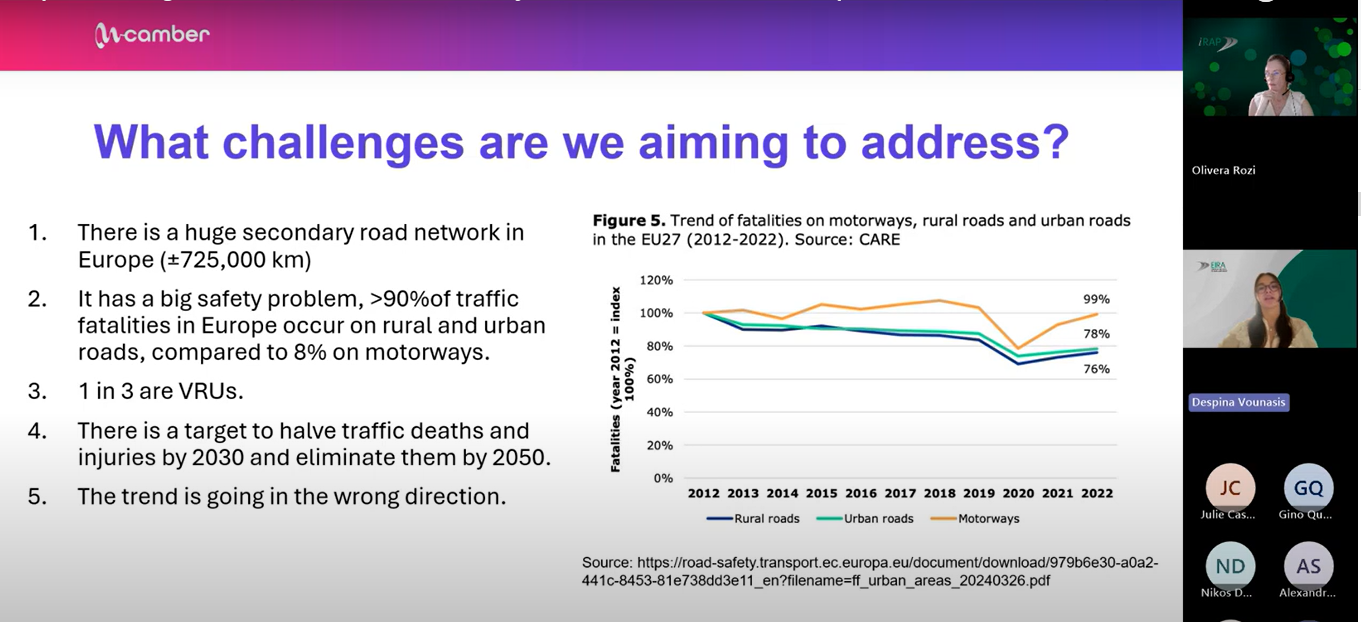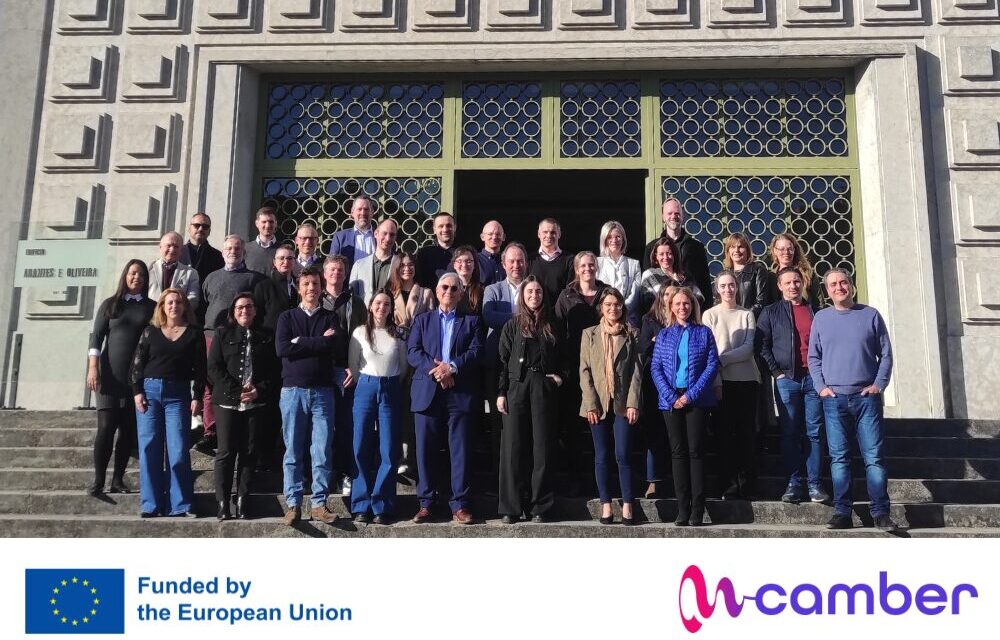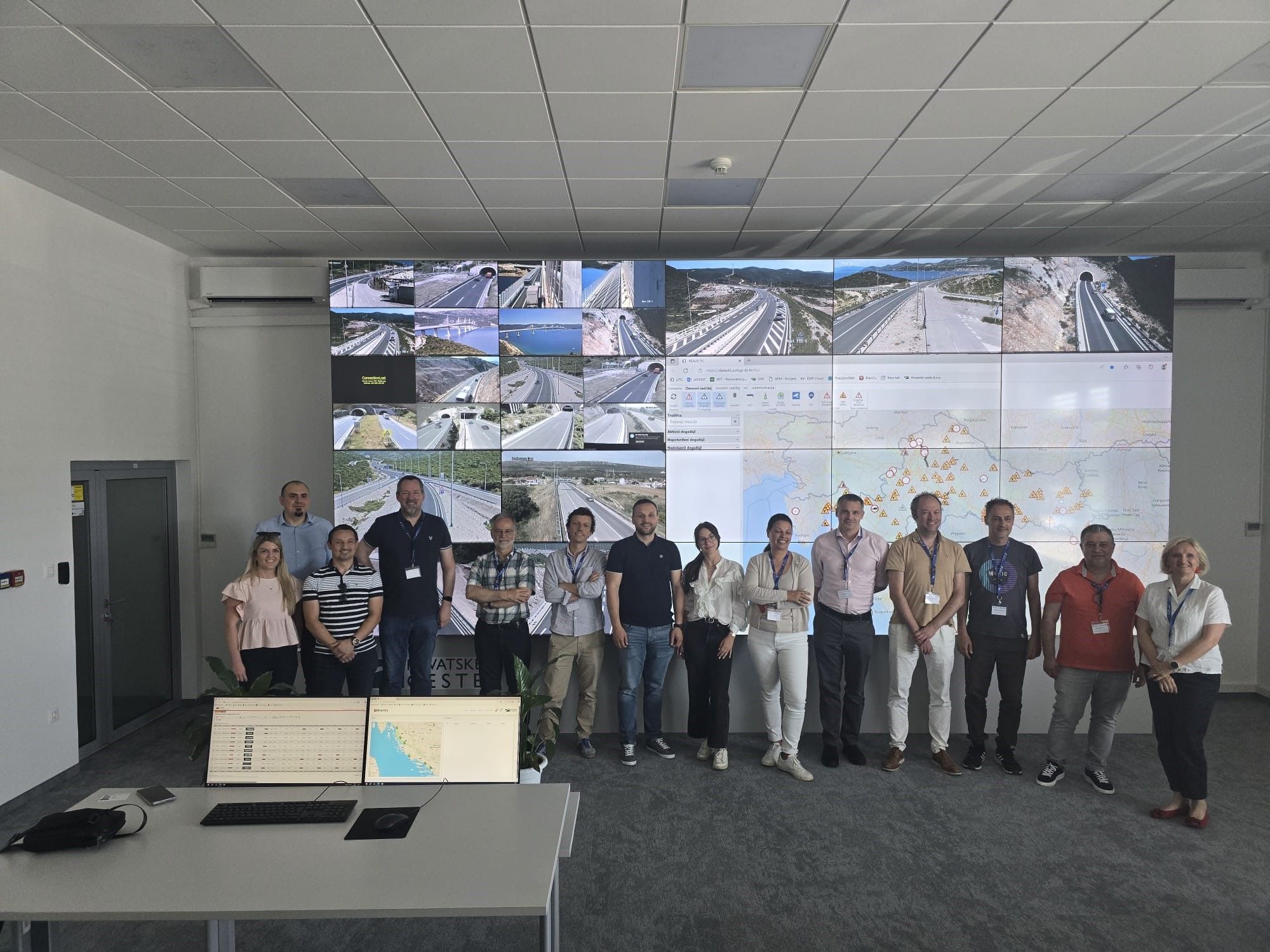On 13th June 2025, CAMBER joined forces with the EU-funded projects EvoRoads and iDriving to explore how data can transform road safety for all users. The event brought together experts to exchange insights, best practices, and visions for the future of safe mobility systems, and served to align approaches, foster synergies, and extend the relevance of the sister projects and their outcomes on the broader safe system community.
The session offered a chance for each project to share its current work. Angela-Maria Despotopoulou from Frontier Innovations introduced the EvoRoads project and explained how it uses Living Labs in different countries to test safety solutions directly with local stakeholders. She also presented the project’s Deliverable D1.2, which sets out a framework for assessing road safety using a broad set of indicators and real-world feedback.
Dr. Alexandros Sfyridis from CERTH then presented iDriving, a project focused on using technologies like artificial intelligence and real-time data to support safer roads in both cities and rural areas.
Representing CAMBER, Olivera Rozi and Despina Vounasis from EIRA explained how the project is testing low-cost, data-informed tools to support road asset and safety management. CAMBER’s focus is on helping public authorities and operators manage secondary and urban roads more effectively, using real-time data, digital twins, and risk-based planning. The team highlighted how the project is working directly with municipalities to test and refine its tools in everyday conditions.
While each project has its own methods, the discussion showed that CAMBER, EvoRoads, and iDriving face many of the same challenges—especially around data access and assessing long-term impact.
Participants agreed on the value of:
-
Improved data sharing, particularly for road asset condition data such as pavement wear or missing signs.
-
Exploring a common data repository, managed in line with privacy laws, to help future projects build on existing work.
-
Creating a shared report to map out available datasets and how they can be reused across projects.
Another shared concern was how to measure the real-world impact of safety improvements. CAMBER’s work with pilot cities aims to address this by focusing on tools that are not only technically effective but also useful and practical for local authorities. The workshop also highlighted the need to match technical outcomes with actual community needs, particularly when it comes to vulnerable users.
All three projects touched on the importance of making their tools relevant beyond pilot areas. For CAMBER, this means focusing on methods that can be adapted to other cities or regions, especially where resources are limited but safety needs are high.
The workshop confirmed that cooperation across projects can help avoid duplication, improve access to useful data, and ultimately support better road safety planning. CAMBER looks forward to continuing this exchange and applying lessons learned to make its tools more useful for road managers across Europe.
If you missed the workshop, you can watch the recording below:



